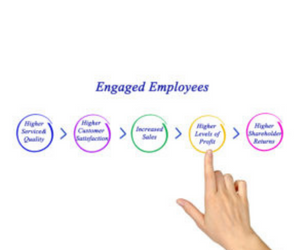Shifting to a High-Functioning Family
You’ve heard of a Tale of Two Cities by Dickens, right? Today’s topic is a Tale of Two Families and the person who can tell the story is Steve Legler, a family business speaker, author, and advisor.
The two families he has in mind are opposites. They’re business families, and while the details of their stories have been disguised, the underlying facts are accurate.
We’ll call the first one the Hatfield-McCoys. Members of this family can hardly stand to be in the same room with each other This resulted in an unusual assignment for Legler.
Family members wanted him to referee the family meetings. Actually, Legler took it as a positive sign that they knew each other well enough to be aware that they needed outside help.
But as he quickly discovered, they REALLY needed outside help. That was because the family meetings followed a most unfortunate pattern.
Arguments among family branches would regularly became emotional, recriminatory, and bitter. When this happened, some branches of the family would simply exit the room and drive back home.
With the meeting blown up, it was close to impossible to schedule the next meeting. Adding to this was the dolorous fact that some family members had begun skipping the family meetings entirely.
They were doing this partly because the meetings were extremely uncomfortable. But they were also doing this because experience had taught them that the outcome would be negative no matter what.
For Legler, the fact that family members either couldn’t or wouldn’t talk with each other, meant a downward spiral. For him, “The all-important thing is to talk. Letting problems fester is almost guaranteed to make them worse.”
The other family in this Tale of Two Families is the opposite. “The Andersons get a long super well,” says Legler.
“With the Andersons, there’s a lot of trust and transparency between the different generations. nd,” he continues, “they’re good at listening to each other’s points of view. They enjoy each other’s company and they work at including family members who aren’t working in the business.”
At this point you, dear reader, are entitled to wonder, “What could Steve Legler, a family business consultant, offer two such different families?”
Interestingly, in the case of both families, Legler encourages them to pay attention to what’s most important, namely the family. He knows that the business needs to prosper, but long-term, if the family relationships aren’t doing well, happiness flies out the window.
After all, what good does it do to have a flourishing business if members of the business family are miserable?
Try Using SHIFT
Success in being a happy supportive family is a journey, and the Andersons are further along the road than the Hatfield-McCoys. Still, in the case of both families,–in fact in the case of all families–Legler encourages them to follow his SHIFT formula. The acronym SHIFT stands for:
Help: There are people with experience and expertise who can help make the journey easier.
Invest: People generally invest time, money, or effort because they’re expecting a better outcome. Having a high-functioning, supportive family is worth the investment it takes.
Flexible: Along the journey to being a high-functioning family, there will be factors that change. We play different roles at different ages, leadership styles change, and events in the family can reconfigure everything. “What made sense before, may not make sense now,” he says.”
Talk: Families need to talk as opposed to letting issues fester.
For Legler, the two business families described earlier can both benefit from the SHIFT process. Any business family, wherever they are on their journey can be strengthened with a SHIFT mindset.
You can contact Legler at: SL@SteveLegler.com.
Search Articles
Latest Articles
Tessa Adams’ Journey to Create a Safe, Supportive Online Community for Mental Health
https://foreignpress.org/journalism-resources/tessa-adams-journey-to-create-a-safe-supportive-online-community-for-mental-health Publication –foreignpress.org
Arming Ukrainian Soldiers with Poetry and Humor
https://foreignpress.org/journalism-resources/arming-ukrainian-soldiers-with-poetry-and-humor Publication –foreignpress.org
How Putin’s Ally Saved Millions of Bottles of Great Wine—For Himself
https://foreignpress.org/journalism-resources/how-putins-ally-saved-millions-of-bottles-of-great-winefor-himself Publication –foreignpress.org
A Ukrainian Policewoman Experiences the Human Side of a Rocket Attack
https://foreignpress.org/journalism-resources/a-ukrainian-policewoman-experiences-the-human-side-of-a-rocket-attack Publication –foreignpress.org
Subscribe to Updates
About Author

Mitzi Perdue is the widow of the poultry magnate, Frank Perdue. She’s the author of How To Make Your Family Business Last and 52 Tips to Combat Human Trafficking. Contact her at www.MitziPerdue.com
All Articles
Be the Person Others Want to Do Business With: Be fair
Be the Person Others Want to Do Business With: Be fairThe Beginnings of the Sheraton Hotel The international Sheraton Hotel Chain grew from an investment of just $1000. My father, his brother, and his college roommate received war bonuses after their military service...
Heart Disease In Women: It’s Different
Heart Disease In Women: It’s DifferentHEART DISEASE IS A WOMAN’S DISEASE In the 1950s, we all thought heart disease was a man’s disease. However, more women are dying of heart disease than men. Also, even though the mortality rates for both men and women are...
Prevent Nightmare House of Horrors: Family Business Quarrel, Part 2
Prevent Nightmare House of Horrors: Family Business Quarrel, Part 2 To prevent a Family Business Quarrel 1. Create a culture emphasizing that family members are part of something bigger than themselves. Being too self-centered is a danger in a family business....
Preventing Nightmare House of Horrors, a Family Quarrel, Part 1
Preventing Nightmare House of Horrors, a Family Quarrel, Part 1Since you’re here reading this, the subject probably hits close to home. If so, you have my entire sympathy. If ever there’s a high stakes situation, it’s the family quarrel in a family business. I’ve had...
Four Things Frank Perdue Did to Encourage Employee Engagement
Four Things Frank Perdue Did to Encourage Employee Engagement Employee engagement is one of the most important – possibly the most important factor in an organization’s success. When I look at how Frank Perdue (my late husband) built his chicken company from a...
Employee Engagement – Gallup Really Knows!
Employee Engagement - Gallup Really Knows!Visit Gallup, the People Who Really Know There are 1.3 billion full-time employees in the world. Give a guess: how many feel enthusiastic about and committed to their work? 1) 13% 2) 30% 3) 82% 4) How the heck could anybody...




